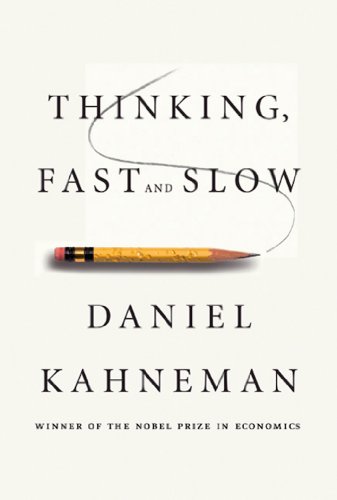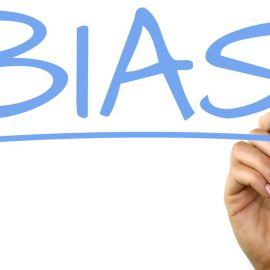

This article is an excerpt from the Shortform summary of "Thinking, Fast and Slow" by Daniel Kahneman. Shortform has the world's best summaries of books you should be reading.
Like this article? Sign up for a free trial here .
What is confirmation bias? What can cause confirmation bias?
Confirmation bias is the tendency to find and interpret information in a way that confirms your prior beliefs. We selectively pay attention to data that fit our prior beliefs and discard data that don’t.
Better understand the above confirmation bias definition and how confirmation bias occurs in decision making.
Confirmation Bias and Decision Making
The above confirmation bias definition suggests that confirmation bias may impact decision making. Confirmation bias materializes in a few ways:
Confirmation bias is the tendency to find and interpret information in a way that confirms your prior beliefs. We selectively pay attention to data that fit our prior beliefs and discard data that don’t.
Better understand the above confirmation bias definition and how confirmation bias occurs in decision making.
Confirmation bias materializes in a few ways:
- We selectively pay attention to data that fit our prior beliefs and discard data that don’t.
- We seek out sources that tend to give us confirmatory data, and reject sources that contradict our beliefs.
- We recall information that confirms our beliefs more readily than contradictory information.
A Lazy System 2 Accepts the Errors of System 1
System 1 is fast, intuitive thinking. System 2 is slow, deliberate thinking. Confirmation bias emerges when System 2 fails to check System 1.
Before we look at how confirmation bias is involved, consider these questions, and go through them quickly, trusting your intuition.
1) How many murders happen in Michigan each year?
2) Does the conclusion from the premises?
- All roses are flowers.
- Some flowers fade quickly.
- Therefore, some roses fade quickly.
Ready to see the answers?
1) The trick is whether you remember that Detroit is in Michigan. People who remember this estimate a number that is much higher (and more accurate) than those who forget.
2) The answer is no—all roses may not fit into the subcategory of flowers that fade quickly.
===
All of your answers, if you really spent time on it, could be verified by deliberate System 2 thinking. For the first question, if you had to enumerate the major cities of Michigan, you would likely list Detroit.
For some people, spending enough time would be sufficient to get the answers right. But many people, even if given unlimited time, might not even think to apply their System 2 to question their answers and find different approaches to the question. Over 50% of students at Harvard and MIT gave the wrong answer to the bat-and-ball question; over 80% at less selective universities.
This is the insidious problem of a “lazy System 2.” System 1 surfaces the intuitive answer for System 2 to evaluate. But a lazy System 2 doesn’t properly do its job – it accepts what System 1 offers without expending the small investment of effort that could have rejected the wrong answer.
Even worse, this aggravates confirmation bias. A piece of information that fits your prior beliefs might evoke a positive System 1 feeling, while your System 2 might never pause to evaluate the validity of the piece of information. If you believe a conclusion is true, you might believe arguments that support it, even when the arguments are unsound. This is the danger of the confirmation bias.
It’s useful then to distinguish between intelligence and rationality.
- Intelligence might be considered the full computational horsepower of a person’s brain.
- Rationality is resistance to mental laziness; not accepting a superficially plausible answer; being more skeptical of intuitions; tending to put in the hard work of checking the logic; and thus immunity to biases.
In other words, a powerful system 2 is useless if the person doesn’t recognize the need to override their system 1 response. Failing to override leads to more confirmation bias, which leads to more failure to override system 1 responses, creating a vicious cycle.
The theme here is that people are overconfident and place too much faith in their intuitions. Further, they find cognitive effort unpleasant and avoid it as much as possible. This leads to confirmation bias in decision making.
———End of Preview———

Like what you just read? Read the rest of the world's best summary of "Thinking, Fast and Slow" at Shortform . Learn the book's critical concepts in 20 minutes or less .
Here's what you'll find in our full Thinking, Fast and Slow summary :
- Why we get easily fooled when we're stressed and preoccupied
- Why we tend to overestimate the likelihood of good things happening (like the lottery)
- How to protect yourself from making bad decisions and from scam artists






